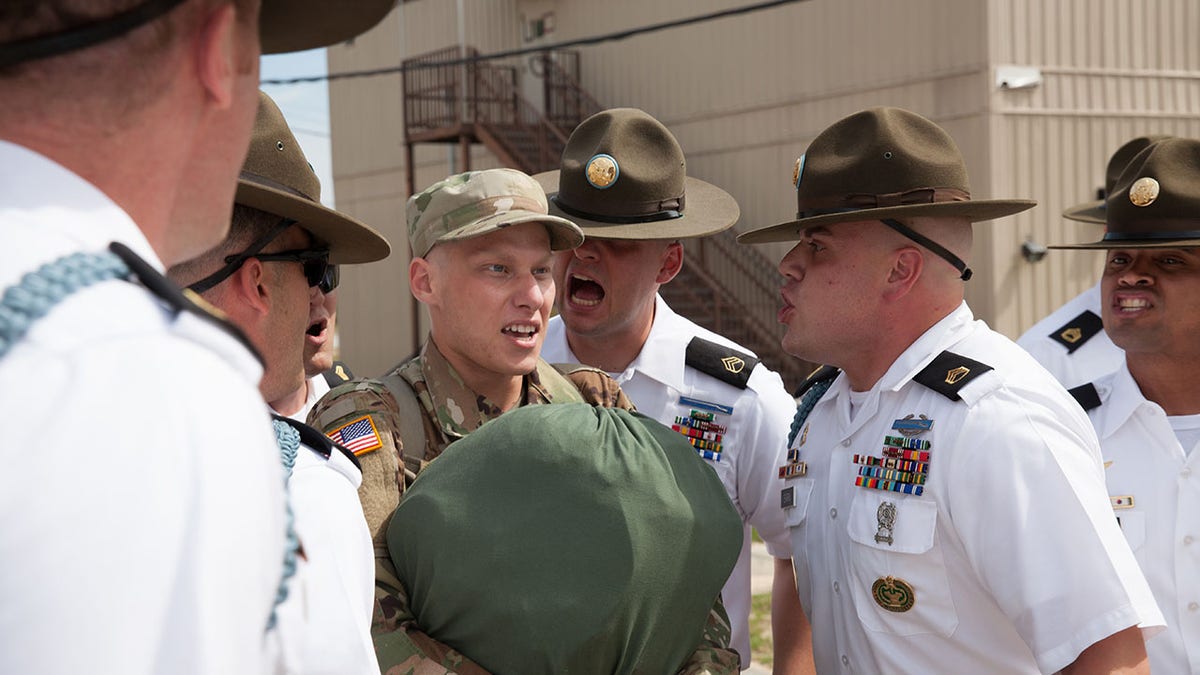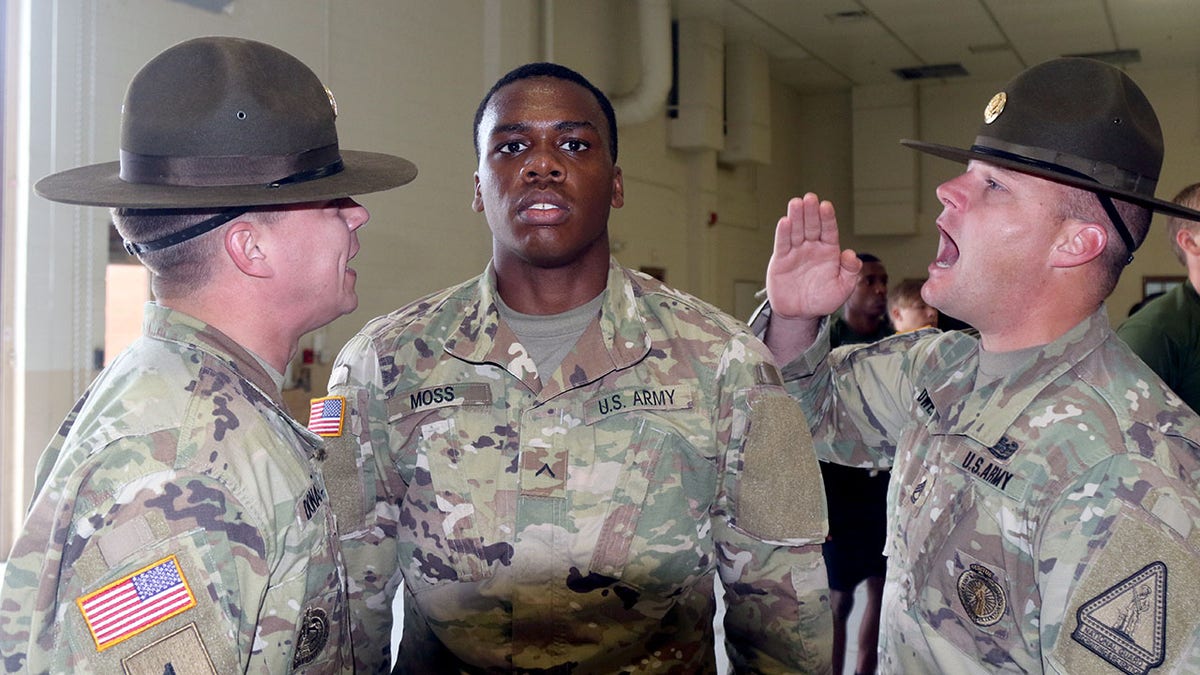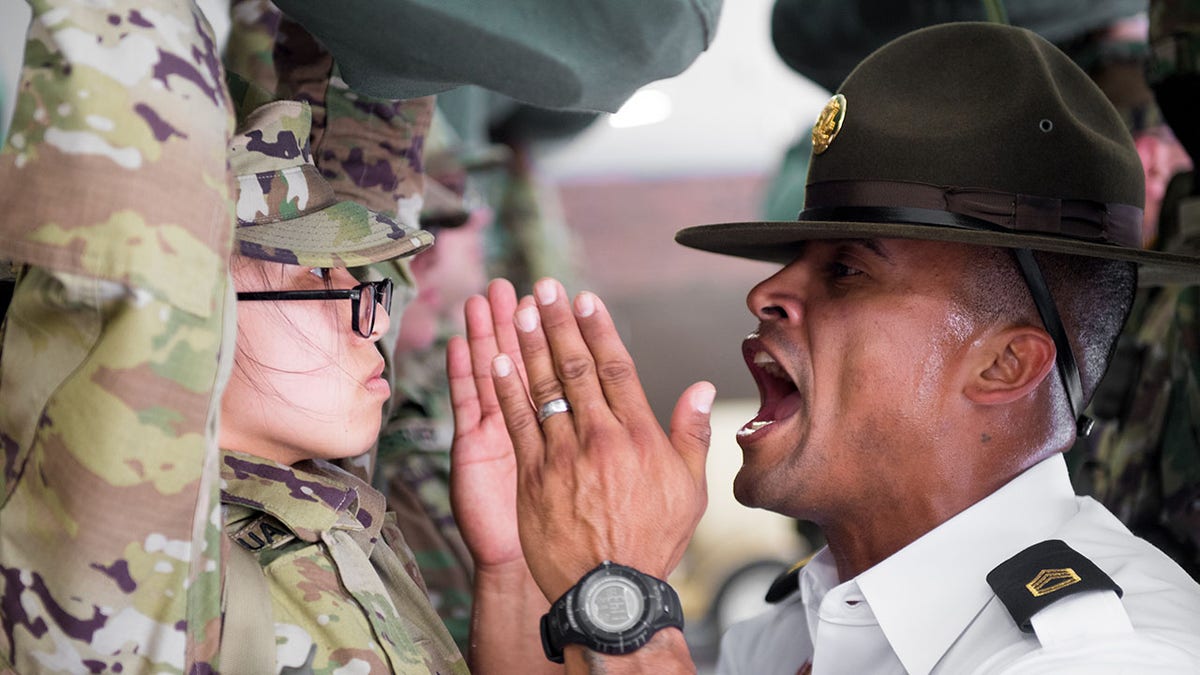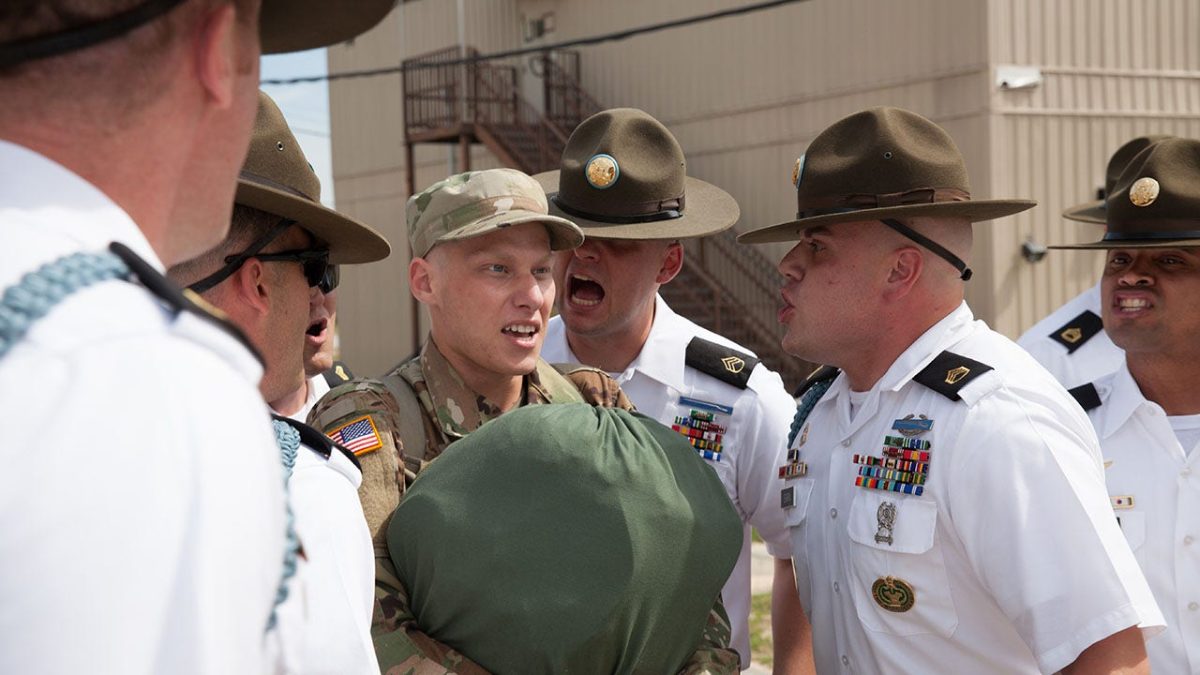NEWYou can now listen to Fox News articles!
Defense Secretary Pete Hegseth is considering reversing a ban on the “shark attack,” the time-honored aggressive practice used by drill sergeants to train U.S. Army recruits in basic training.
The practice was usually employed at the beginning of training by having several drill sergeants swarming trainees and yelling in their faces at the top of their lungs.
“It starts at basic training. It starts at our military academies,” Hegseth said Thursday during an appearance on “The Will Cain Show.”
“We are going back to basics. Drill sergeants will be drill sergeants with knife hands who ensure, who maintain good order and discipline and train up great recruits who will make great formations. Just like we need military officers with that same rigorous discipline and background. So, we’re going back to the basics, and it’s bearing fruit.”
HEGSETH VOWS TO RESTORE WARRIOR MENTALITY AND RAISE STANDARDS IN SWEEPING MILITARY TRANSFORMATION

The Army began phasing out the shark attack in recent years and largely ended it in 2020. It was replaced by the ‘First 100 Yards,’ a more structured training exercise designed to build camaraderie and encourage teamwork under stress.
“‘The First 100 Yards’ is a U.S. Army trainee’s first exposure to their Basic Training (BCT), Drill Sergeants, and their first opportunity to begin their transformation as members of the world’s most potent and lethal fighting force,” the U.S. Army Center for Initial Military Training posted on Facebook. “‘The First 100 Yards,’ a homage to their lineage of closing the last 100 yards of the fight, incorporates teamwork into a competition that features mental and physical challenges on the day they arrive to their basic training company.”
HEGSETH SPARS WITH SENATE DEMOCRATS OVER MARINE DEPLOYMENT TO LA ANTI-ICE RIOTS: ‘NOT ABOUT LETHALITY’
The act of replacing the shark attack grew out of deliberations at the Army Infantry School in Fort Benning, Georgia. Senior leaders believed the practice was outdated but stressed at the time that the Army was not going soft despite the absence of the in-your-face pile-on trainees were subjected to.
Supporters of the shark attack said it helps trainees transition from civilian to military life and prepares them for the chaotic environment some will experience on the battlefield.
“The secretary is very excited to be making basic training great,” Defense Department press secretary Kingsley Wilson said Thursday. “Again, I can confirm that he’s going to be looking at basic training and making sure that the standards are where they should be.
“We want our warfighters to be strong, and that starts in basic training, and we want to make sure we really, again, go back to basics. And shark attacks are going to be something that he is looking at reinstating.”

One Army unit recently reversed a ban on “tossing bays,” another traditional practice in which drill sergeants overturn bunks and mattresses, wall lockers, garbage cans and other items in the bays where enlisted trainees sleep, forcing them to clean the area.
A July 31 memo by Col. Christopher J.C. Hallows, commander of the 197th Infantry Brigade, which trains infantry soldiers, announced that bay tossing was “strictly prohibited.”
“Drill sergeants will not ‘toss’ the bay to include flipping mattresses, knocking over wall lockers, touching and/or damaging Trainee personal items or equipment,” the memo states. “Drill sergeants will not use bay ‘tossing’ for any reason to include methods of corrective action.”
On Sunday, Hallows issued another memo reversing the ban.
On Thursday, Hegseth noted that bay tossing and the shark attack have been part of basic training for decades.

“It’s the basic stuff that anyone who went through any form of basic training for decades understood as a recruit, you were going into a crucible,” he said. “You were going to be forged. You were gonna be challenged. You were to be scared, nervous and anxious.
“And by coming through that, you are gonna be forged an American warrior. A shark attack is when drill sergeants surround one particular enlistee, right?” he added. “Creating a stressful situation that they have to figure out how to manage. Bed tossing inside barracks after you’ve had a long day doing map out on the range or walk in patrol — this is basic stuff. This is not beyond what’s been done. This is a restoration.”
Read the full article here


